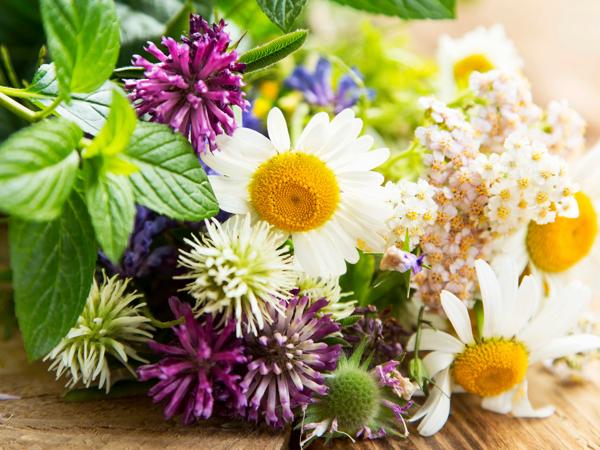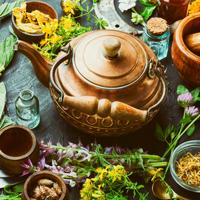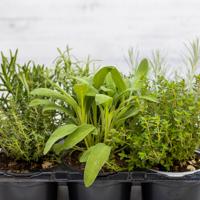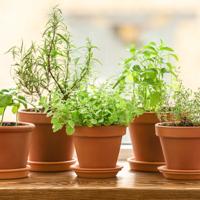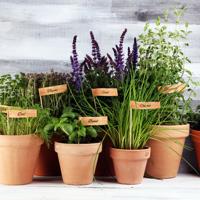In our modern world, many individuals are rediscovering the value of medicinal herbs. Growing your own medicinal herbs can be a fulfilling journey that enhances your connection with nature while offering an opportunity to incorporate these herbs into your daily life.
Why Grow Medicinal Herbs?
Cultivating medicinal herbs at home empowers you to engage with sustainable and healthful practices. It offers a garden-to-table lifestyle where you can step into your garden and harvest fresh herbs for herbal teas, home remedies, or culinary adventures. Plus, it’s a wonderful opportunity to contribute to biodiversity by nurturing a variety of plants.
Let’s explore some medicinal herbs that you might consider cultivating in your home garden. Remember, it’s essential to consult with healthcare professionals before using any herb for medicinal purposes.
1. Chamomile (Matricaria chamomilla or Chamaemelum nobile)
Chamomile is renowned for its calmative properties. It’s often brewed into a soothing tea that might support relaxation and sleep. Chamomile has also been noted for potential anti-inflammatory effects.
This herb thrives in well-drained soil, under the gentle embrace of the sun. Its dainty, daisy-like flowers can add beauty to any garden.
2. Lavender (Lavandula)
Lavender is known for its aromatic fragrance that has been believed to provide calming effects. Many enjoy lavender in sachets or essential oils, purportedly to aid stress reduction.
Growing lavender requires a sunny spot and well-drained soil, making it a resilient choice in various climates. Its purple blooms can be a delightful addition to a garden landscape.
3. Peppermint (Mentha piperita)
Peppermint is another well-loved herb often associated with digestive comfort, particularly when enjoyed as a tea.
This prolific plant prefers moist soil and partial shade. It’s important to note that peppermint can be invasive, so considering a container might be wise.
4. Echinacea (Echinacea purpurea)
Echinacea, also known as coneflower, has been discussed in herbal circles for its potential immune-supportive properties. Its vibrant flowers also attract pollinators, making it a valuable addition to a garden ecosystem.
This herb is relatively low-maintenance and thrives in sunny spots with well-drained soil.
5. Lemon Balm (Melissa officinalis)
Lemon balm, with its bright citrus scent, is often sought after for its purported mild sedative properties. It can be a refreshing component in teas or culinary dishes.
Lemon balm is versatile, growing well in both sunny and partially shaded areas, though it prefers moist soil.
6. Calendula (Calendula officinalis)
Calendula, or pot marigold, is known for its vibrant orange and yellow flowers. It has been historically used in topical applications for skin soothing, thanks to its purported anti-inflammatory properties.
This hardy annual requires moderate sunlight and well-drained soil, and it can even thrive in poor garden soil.
Cultivating Intentionality
When growing medicinal herbs, take time to learn about each plant’s needs to nurture a successful garden. Seek reliable sources to deepen your understanding of potential benefits. Engaging in a mindful gardening practice not only enhances your space but also your well-being.
A Personal Journey
Embracing medicinal herbs in your garden is not about quick fixes, but about cultivating a sustainable, garden-to-table approach to wellness. It’s an invitation to explore the simplicity and beauty of plants that has nourished humanity for generations.
Take this as a gentle start to your herbal adventure, always ensuring you seek professional guidance for any medical concerns.
Happy gardening!
References
While this article offers insights into growing medicinal herbs, further information is pivotal. Books such as “The Herbal Apothecary” by JJ Pursell and “The Complete Book of Herbs” by Lesley Bremness provide in-depth understanding. The National Center for Complementary and Integrative Health (NCCIH) is also a valuable resource for scientific research on herbal supplements.
Please remember to continuously seek trusted information from reputable sources to guide your herbal journey.
